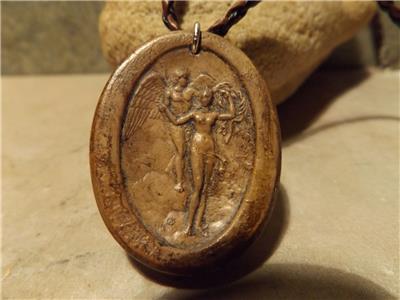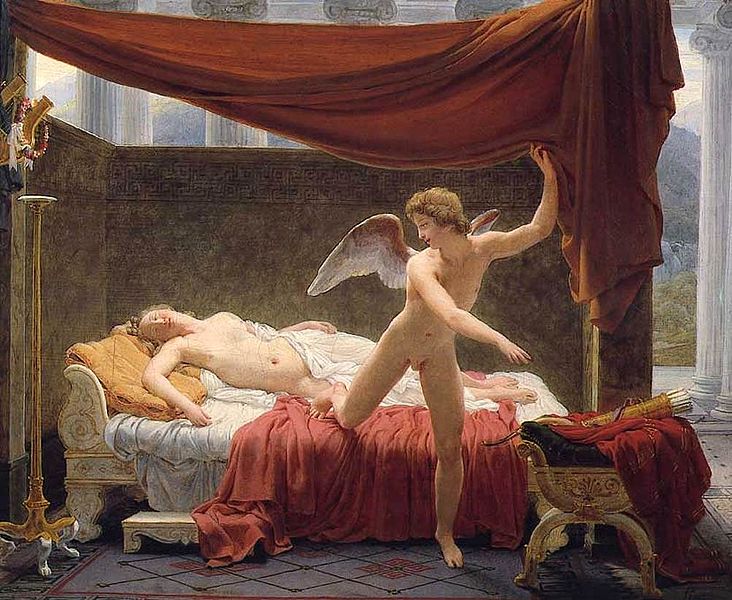Psyche, (Greek: “Soul”) in classical mythology, princess of outstanding beauty who aroused Venus’ jealousy and Cupid’s love. The fullest version of the tale is that told by the 2nd-century-ad Latin author Apuleius in his Metamorphoses, Books IV–VI (The Golden Ass). Psyche was the ancient Greek goddess of the soul and the wife of Eros (Roman Cupid) god of love. The story has been retold in poetry, drama, and opera, and depicted widely in painting, sculpture, and even wallpaper.

Though Psyche is usually referred to in Roman mythology by her Greek name, her Roman name through direct translation is Anima. In Greek and Roman mythology , Psyche was a princess of such stunning beauty that people came from near and far to admire her. Jealous that so much praise was flowing to a mortal girl, Aphrodite decided. She eventually became the goddess of souls, being deemed worthy of immortality after completing a series of impossible tasks and due to the undying love of Eros, her husband.
In Roman mythology , Psyche represented the human spirit and was portrayed as a beautiful girl with butterfly wings. Venus demanded that her son order Psyche to fall in love with the ugliest man in the world. Psyche was a mortal woman who was turned into the goddess of the soul in Greek mythology. Though adapted somewhat into the better known Beauty and the Beast—first written by French author Jeanne-Marie Leprince de Beaumont as La Belle et la Bête—the correlation to the earlier ancient text is relatively unrecognized.
She was always depicted having butterfly wings. Psyche though was a relatively unusual goddess in the Greek pantheon, for Psyche was not born immortal but was transformed into one. The Princess Psyche Today, the most famous version of the mythology of Psyche comes from the Roman perio for the story of Psyche, and Cupi is a central theme in Apuleius’ The Golden Ass. The Greeks thought that the breath was the soul. In Greek mythology Psyche was a beautiful maiden who was beloved by Eros (or Cupid in Roman mythology).
Mythology Summary and Analysis of Cupid and Psyche. The happy ending, with Venus, Psyche , and Cupid all reaching a positive resolution, illustrates that when love is pure, all pains, sorrows, and challenges will align to ensure that the love is realized. Even nature, as the ants and eagle demonstrate, support true love.

The mythical story of Cupid and Psyche by Josephine Preston Peabody The Myth of Cupid and Psyche Once upon a time, through that Destiny that over-rules the gods, Love himself gave up his immortal heart to a mortal maiden. Eros (Ἔρως), in Greek mythology, was the Primordial God of Love, sexual desires, attractions, beauty, procreation, fertility and archery. His Roman counterpart was Cupid (desire), also known as Amor (love). In some myths, he was the son of the deities Aphrodite and Ares, but according to. But human lovers were too intimidated to approach her, and Apollo recommended her father.
Psyche : Psyche is the representative of passion and love in Greek and Roman mythology. Then, she became the goddess of the soul, and wife of. Today, Psyche is known from a story called The Golden Ass, written by Lucius Apuleius in the 2nd century.
She is always pictured with butterfly wings. When she did try, while he was asleep, she accidentally dropped oil from her lamp on him, and he awoke and fled. As a rule the Romans were, not myth-makers, and the myths they had were usually imported. Psyche (プシュケ, Pushuke) is a demon in the series.
The Roman gods were utilitarian, like the practical and unimaginative Romans themselves. These gods were expected to serve and protect men, and when they failed to be useful their worship was curtailed. This story is all about what happens when Cupid gets nicked by his own arrow and falls for a mortal girl.

According to the Roman mythology, the parents of Cupid were Mars and Venus. You have probably heard of the Roman god Mars, who was the god of the war. On the other side, Cupid’s mother was Venus and she was the goddess of love.
However, in Latin literature it was told that Cupid’s mother was Venus, while his father was not mentioned at all. Psyche obeyed the commands of Ceres and took her way to the temple of Venus, endeavoring to fortify her mind and ruminating on what she should say and how best propitiate the angry goddess, feeling that the issue was doubtful and perhaps fatal. The Roman religion (the actual practice of worshipping the gods in question) was also extremely different from the Greek one, dealing more with human representatives of the remote gods rather than stories of the gods themselves.
Essentially, Roman mythology is a little bit like a Continuity Reboot of Greek mythology.
Nincsenek megjegyzések:
Megjegyzés küldése
Megjegyzés: Megjegyzéseket csak a blog tagjai írhatnak a blogba.